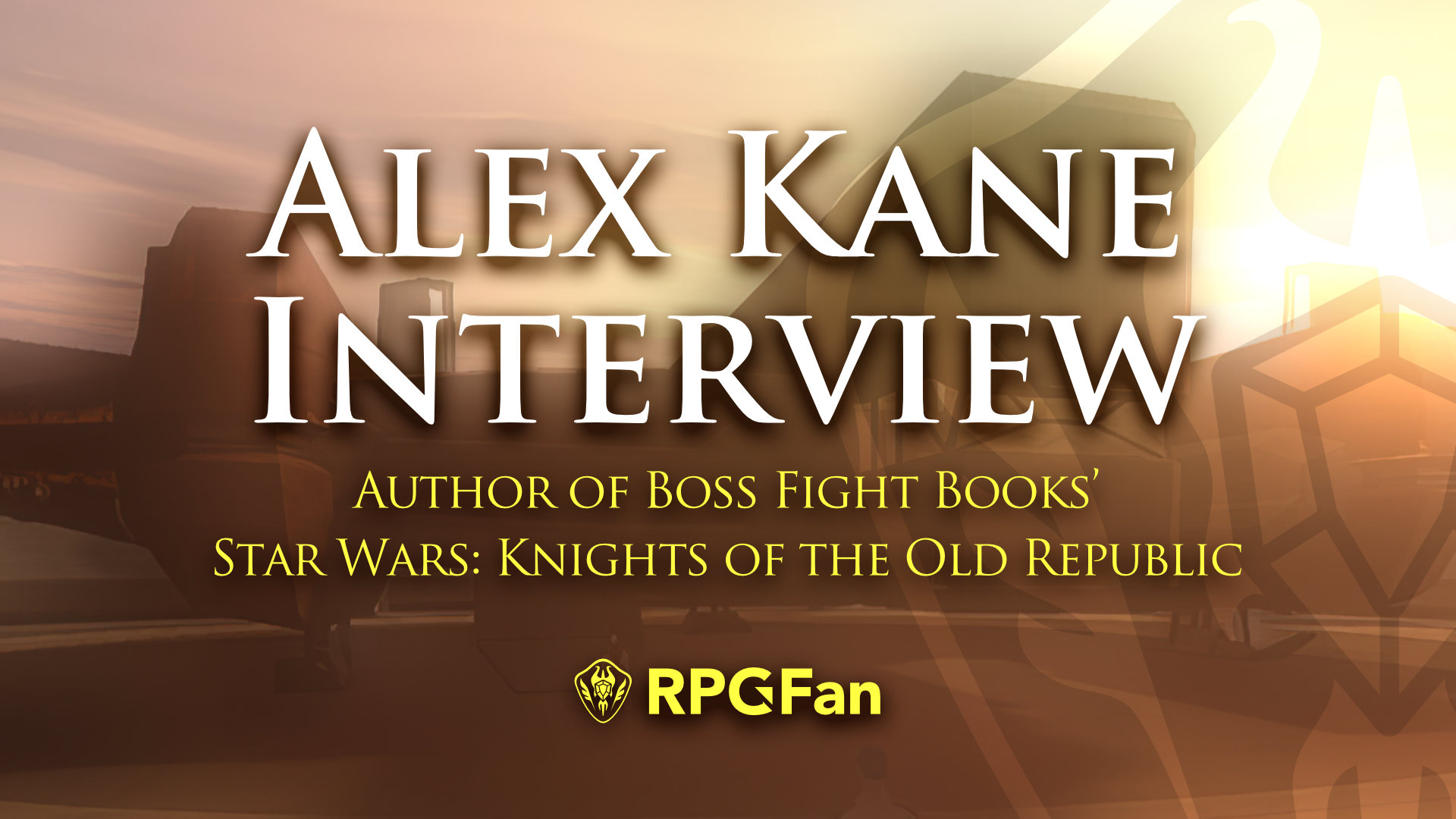Star Wars: Knights of the Old Republic is often held up as one of the greatest RPGs ever made. Not only did it help cement BioWare’s reputation as a preeminent RPG developer, but its storytelling and gameplay mechanics have influenced countless RPGs that came after it.
This past April, Boss Fight Books published a brand new book written by journalist Alex Kane following the game’s development from the LucasArts boardroom all the way to its release on the original Xbox and PC in 2003. RPGFan recently had a chance to talk with Alex Kane about his experience researching and writing the book, as well as his thoughts on the Star Wars franchise as a whole.
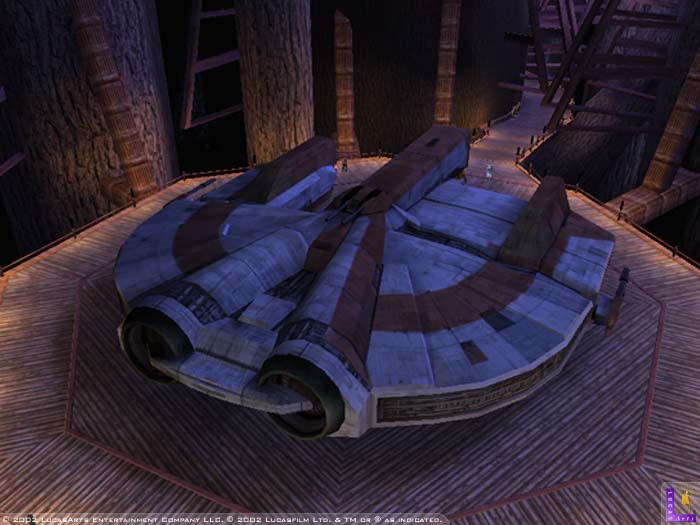
About Alex Kane
RPGFan: So my first question is what’s your background in game journalism?
Alex Kane: Right around April 2016, I started doing news for the video game site Kill Screen. They needed news writers, and I threw my hat in the ring. My early pieces seemed to make a good first impression, and I quickly rolled into doing features for them. Pretty soon after that, most of the Kill Screen editorial staff got laid off. I got really lucky, though, and got a job writing for Glixel, Rolling Stone’s gaming site at the time. Then their editorial staff got laid off too.
Thankfully, both of those opportunities led to a lot of good things, such as writing for StarWars.com. I’ve been writing for them, here and there, ever since.
RPGFan: How’d you fall in with Boss Fight Books? Did they headhunt you or did you know someone already?
Alex Kane: No, I didn’t know anyone there. I first contacted Boss Fight Books a year before I even started writing for Kill Screen. In May 2015, I pitched a book on Halo 2 to them. They said, “Great pitch, but no thanks, we’ve got enough books for the next season.”
So over the following year, I politely bugged Gabe Durham, Boss Fight’s publisher, with emails every now and then to let him know what I was up to. I submitted a few more sample chapters for the Halo 2 idea to prove that I could sustain talking about one game for 30,000 words.
Then I shifted gears in May of 2016 and sent this very Kill Screen-like pitch to them evaluating Knights of the Old Republic across scholarly criteria such as free will, determinism, and criminal justice. And they were blown away. They called me that October and asked me if I would prefer writing a book about KotOR or Halo 2. I, of course, said KotOR!
By the second draft, the book evolved into an oral history rather than that pseudo-academic pitch. I wanted to write something that was born of love rather than try to impress editors like you do when you are just starting out. In the end, I got to write a book that I would want to read. If I were at a bookstore and read the description, I would want to buy it. Maybe it isn’t perfect, but I put all my passion into it.
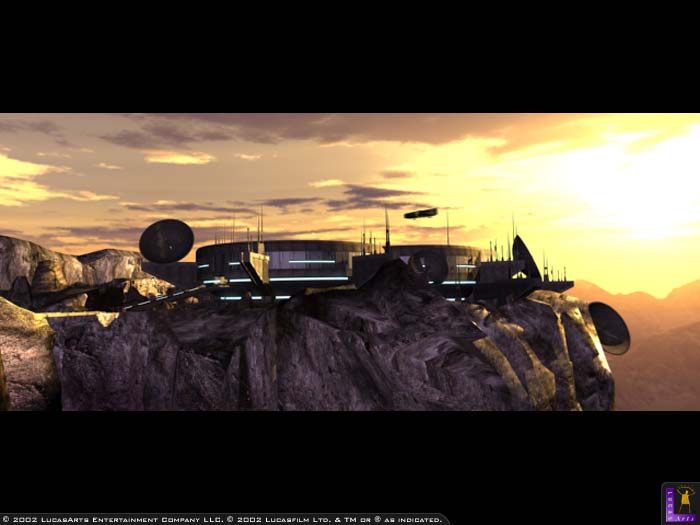
About the Book
RPGFan: You conducted the interviews for the book between March 2017 and August 2018. Did you get everyone you wanted?
Alex Kane: There was a lot of legwork on my part, trying to track people down, begging people to give me emails. It’s usually easy to get someone to talk to you about a project they worked on years ago, but that isn’t necessarily the case with Star Wars. They’re always terrified of misremembering, or getting sued, or not being hired again. So finding people even willing to talk about their experience on KotOR was a challenge. On the whole though, I think I got a pretty good cross-section of people who worked on the game.
I really wanted to talk about Jeremy Soule because his music is a big part of KotOR‘s identity. But it wasn’t a big surprise that he didn’t want to do the interview. He won’t talk about the Elder Scrolls or Star Wars. I went back and forth with him several times, but he kept saying that he’s signed so many NDAs that he’s never sure what he’s allowed to talk about.
I also wanted to interview Greg Zeschuk and Ray Muzyka, the founders of BioWare. The philosophy and culture they built at BioWare were big parts of what made KotOR special. I tried everything I could to get their attention, but they are busy guys! So I didn’t end up talking to either of them.
RPGFan: Were there any big surprises that came out of the interviews?
Alex Kane: Getting Darragh O’Farrell, the voiceover director for pretty much every Star Wars game since 1995, was a pleasant surprise. He has more credits on Star Wars projects than anyone but George Lucas.
I was wrapping up the last few drafts of the book and was desperate for any interviews that I could land. I texted Janina Gavankar, the incredible actor who was the voice and likeness of Iden Versio in the campaign of Star Wars Battlefront II, and said, “Hey, I’m looking for interviews, have you ever played KotOR, what did you think?” She told me she hadn’t played it yet, but gave me a number. Darragh O’Farrell.
It never occurred to me to seek out the voiceover director. It was sheer luck that she put me in touch with him. A lot of people who’ve read the book told me that it was their favorite part by far. So it’s pretty cool that the best chapter is the one that almost didn’t happen.
RPGFan: Was it a challenge writing the book for a wider audience than just Star Wars and KotOR fans?
Alex Kane: As a Star Wars fan, you kind of assume that most people have heard of Star Wars or KotOR. The reality, though, is that there are a lot of people who haven’t but would still be interested in reading a book like this. That was something that my editors and I went back and forth over in the last few drafts. It was super valuable having their insight, pointing out places where an unfamiliar reader might be, like, who the fuck is Carth Onasi? It’s my first book, so I was trying to walk the tightrope of how much information I needed to throw at the reader while not losing the tension of what I was trying to communicate.
I got very lucky with my editors. They could have been very hands off and let me do my thing, and then the book would have been garbage. But instead, they kept telling me where I needed to build things up, where I needed to put the focus, and where I needed to cut things. It’s hard when you’ve done all of this original reporting because you get married to every quote. We had to lose countless quotes because the secret sauce of any book is cutting the fat and leaving only the best material. All the credit in the world to my editors for showing me all of the places where that needed to happen.
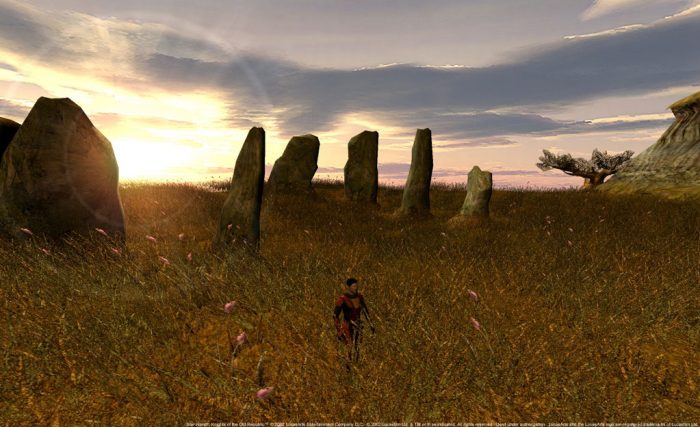
About Knights of the Old Republic and Star Wars
RPGFan: When was the first time you played KotOR?
Alex Kane: The first week of release. The game came out on July 15th, and I got it for my birthday on July 21st. I was 13.
Even before the game came out, I was checking screenshots online and, wow, it looked pretty different. It was set 4000 years before the trilogies and you still had droids, lightspeed, and lightsabers, but everything had this golden-age look. It spoke to me. I saw the Sith walking around on Taris in chrome-plated armor wielding real metal swords; it felt unique compared to any Star Wars game I had played in the past.
And then there was the D20-inspired combat system. I had never seen anything like that before. All of my experience with RPGs up to that point was the hack-and-slash variety like Morrowind or Ocarina of Time. And suddenly, I was playing this D&D-style game set in the Star Wars universe with this weird, ancient aesthetic…
More than anything though, it felt like an inviting world. I instantly wanted to know more about the characters, the NPCs, the cantinas on every planet. It was a game where, when a character spoke to me, it wasn’t a nuisance because they had a full voiceover. And an excellent voiceover at that!
It was a different kind of RPG than, say, Morrowind. Morrowind was a sandbox playground where you could wander and enjoy the world. KotOR was about getting narrative through dialogue in a way that a lot of people had not been exposed to before. It was a pivotal moment for big-budget roleplaying games that lead to things like Mass Effect, Skyrim, and the Witcher series. All of those games owe a massive debt to the bold moves that KotOR made.
RPGFan: Even before you played the game, you were obviously a Star Wars fan.
Alex Kane: I wanted to be a storyteller since I was 12 and saw Attack of the Clones. That movie blew the doors open in my mind. I was sitting there watching and suddenly realized that if you can imagine something, then you can create it using digital tools. It was mind-blowing. And you know, maybe some of the stuff in Episode II doesn’t hold up today, but to me, that movie still feels like the most important two hours of my life.
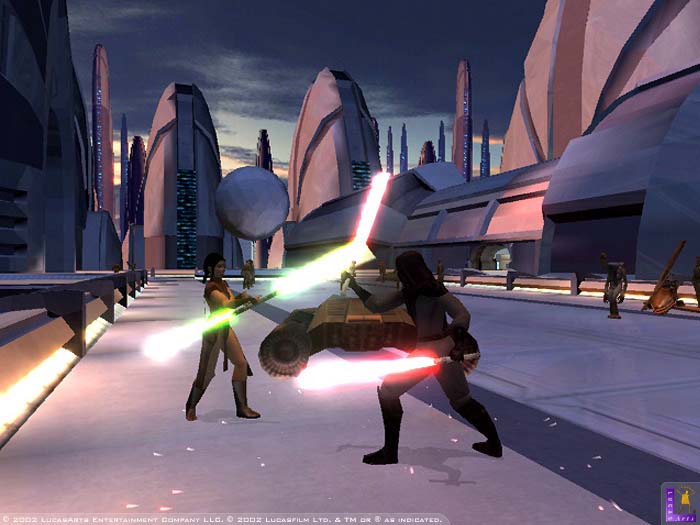
RPGFan: Were you a fan of the Star Wars Expanded Universe?
Alex Kane: With the expanded universe, I always cherry-picked the things that I was interested in. I wasn’t someone who read all of the New Jedi Order books or anything like that. Plus, when I did pick up a lot of that stuff, it didn’t feel like the Star Wars that I knew from the films. I mean, I grew up with the prequels. I was the same age as Jake Lloyd in Episode I. So this little boy is podracing and having all of these adventures with the Jedi; it was very easy for me, at age nine, to get swept up in the fantasy of the prequels. I was on a wavelength that maybe some adults couldn’t be on because they were locked into a specific idea of what Star Wars was supposed to be.
But then, KotOR became a door into that expanded universe. I thought, okay, now here’s an expanded universe story that I adore. From there, I picked up the Darth Bane trilogy of novels written by Drew Karpyshyn, who was the senior writer on KotOR. To this day, they remain some of my favorite books. So I learned how to enjoy those things.
RPGFan: Why do you think KotOR is still held up as one of the greatest games ever made?
Alex Kane: The bottom line is that it’s a good story. I think the dialogue in KotOR 2 might be better, but the structure and design of KotOR stand apart. James Ohlen, the lead designer, was a famously huge D&D nerd who grew up being a dungeon master for his friends. So his heart was in that D&D storytelling realm. The ideas that he forged as a teenage dungeon master informed what KotOR eventually became.
But there’s more than just that. You can’t help but see the love and the passion that went into creating the incredible cast of characters and designing the look and feel of the Old Republic. There was the environment art, and voiceover performances, and Jeremy Soule’s music. And then, of course, the Darth Revan twist.
RPGFan: It’s one of the genuinely great video game twists of all time.
Alex Kane: It was so smart and carefully crafted — just a total narrative mic drop. I was 13, and it shocked me and flipped the entire experience upside down. It was the “I am your father” moment for a whole generation who grew up on video games.
But even if you took that twist out, you’d still have a phenomenal RPG. It was the product of a bunch of D&D nerds who happened to be Star Wars fans. They were locked away in an office in Canada, freezing their asses off and working till dawn. They genuinely cared about Star Wars. It was a grand, impossible vision that they pulled off in a way that most licensed video games can only fantasize about.
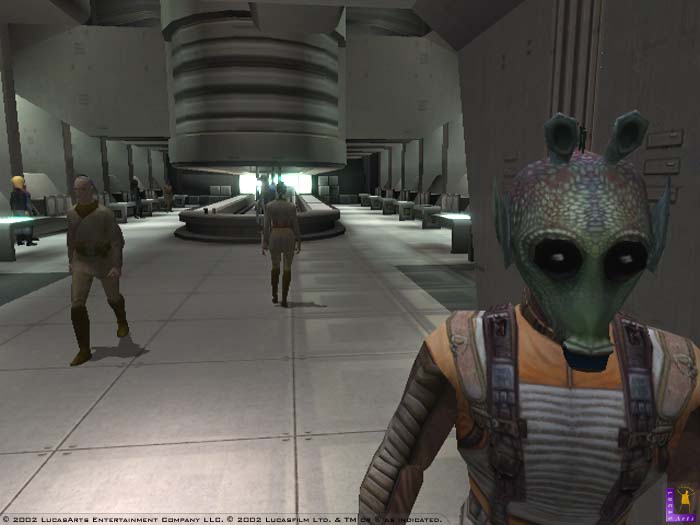
RPGFan: You ended up writing this book at a serendipitous time. There’s been a burst of interest in KotOR lately with Disney’s announcement that they are looking at developing it for future projects.
Alex Kane: Disney knows what people think and like about Star Wars. They know that anytime someone at Disney or LucasFilm mentions KotOR, the internet explodes into speculation. People aren’t shy to tell the people in charge that they love this game and setting. The fans want more of that stuff, whether it’s a game or a movie. So it’s a smart thing for them to do.
RPGFan: Do you think that Star Wars games of the current generation have lost something, as compared to when Knights of the Old Republic 1 and 2 came out?
Alex Kane: The current generation? I don’t know if I would say that yet.
I do think we got off to a slow start with the partnership between EA and Star Wars, but I’m not ready to be, like, we’re not telling good stories in Star Wars games anymore. I think that Fallen Order shows a ton of promise. I’m ready to get back to the Jedi stories where I get to hold a lightsaber.
And honestly, I love the Star Wars Battlefront II story campaign. I think that it’s underappreciated and will grow in estimation as time goes on. It was fantastic, but people weren’t able to enjoy it because of the loot box controversy.
I don’t want to see Star Wars put up as a sacrificial lamb, but I do think that games as a whole are going to benefit from the hard lessons that EA learned about loot boxes. If Star Wars had to suffer so that the games of the future aren’t riddled with pay-to-win elements, then it will have been worth it.
Our thanks to Alex Kane for answering our questions. You can learn more about the book in our review, and more about the game itself on our game hub.
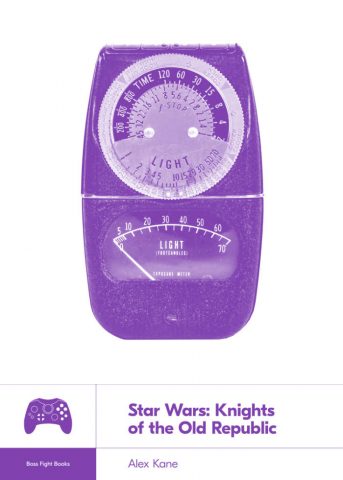
Star Wars: Knights of the Old Republic by Alex Kane is available from Boss Fight Books now for $4.95–$14.95 USD as an eBook or paperback.

